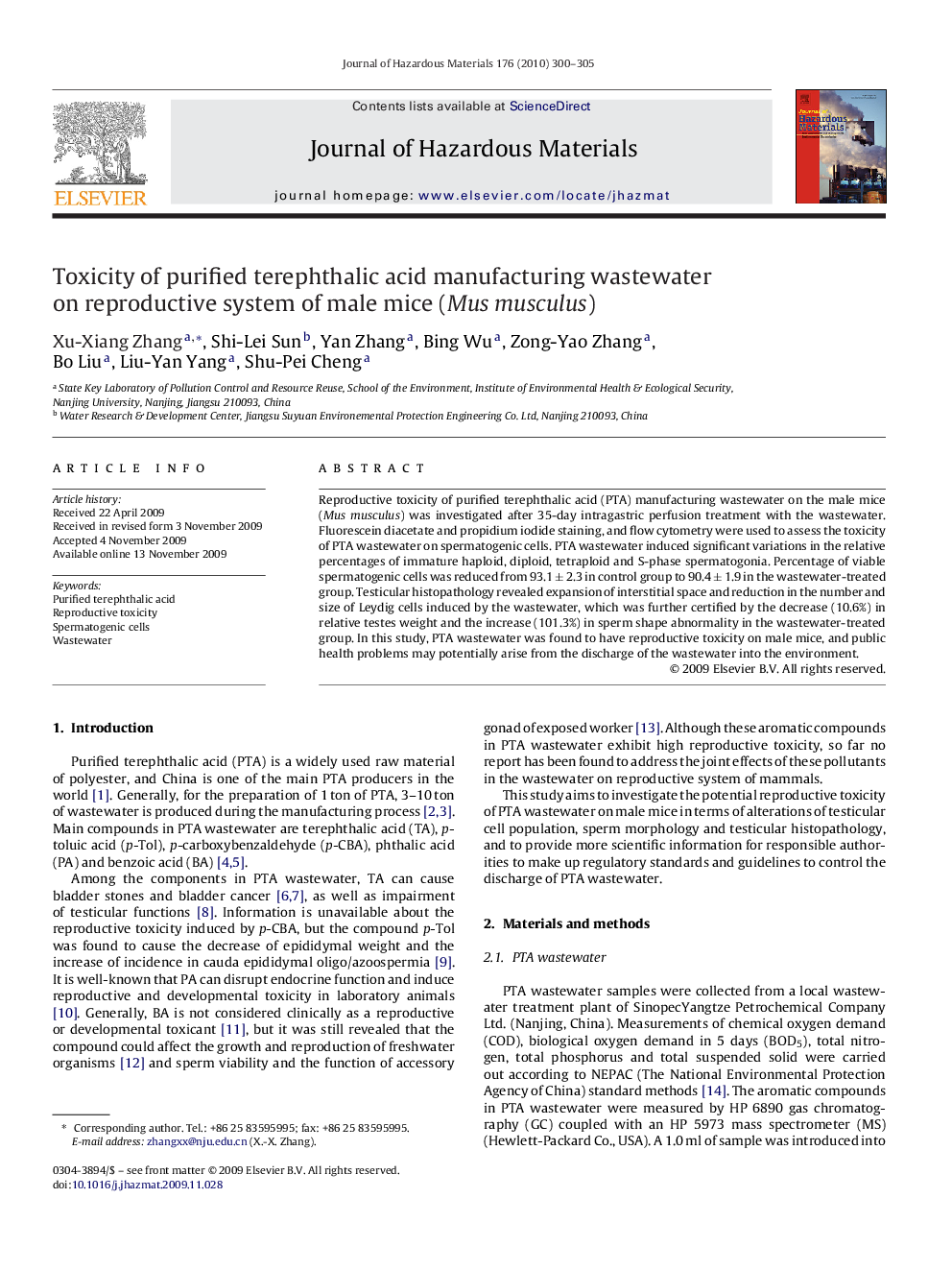| Article ID | Journal | Published Year | Pages | File Type |
|---|---|---|---|---|
| 580567 | Journal of Hazardous Materials | 2010 | 6 Pages |
Abstract
Reproductive toxicity of purified terephthalic acid (PTA) manufacturing wastewater on the male mice (Mus musculus) was investigated after 35-day intragastric perfusion treatment with the wastewater. Fluorescein diacetate and propidium iodide staining, and flow cytometry were used to assess the toxicity of PTA wastewater on spermatogenic cells. PTA wastewater induced significant variations in the relative percentages of immature haploid, diploid, tetraploid and S-phase spermatogonia. Percentage of viable spermatogenic cells was reduced from 93.1 ± 2.3 in control group to 90.4 ± 1.9 in the wastewater-treated group. Testicular histopathology revealed expansion of interstitial space and reduction in the number and size of Leydig cells induced by the wastewater, which was further certified by the decrease (10.6%) in relative testes weight and the increase (101.3%) in sperm shape abnormality in the wastewater-treated group. In this study, PTA wastewater was found to have reproductive toxicity on male mice, and public health problems may potentially arise from the discharge of the wastewater into the environment.
Related Topics
Physical Sciences and Engineering
Chemical Engineering
Chemical Health and Safety
Authors
Xu-Xiang Zhang, Shi-Lei Sun, Yan Zhang, Bing Wu, Zong-Yao Zhang, Bo Liu, Liu-Yan Yang, Shu-Pei Cheng,
